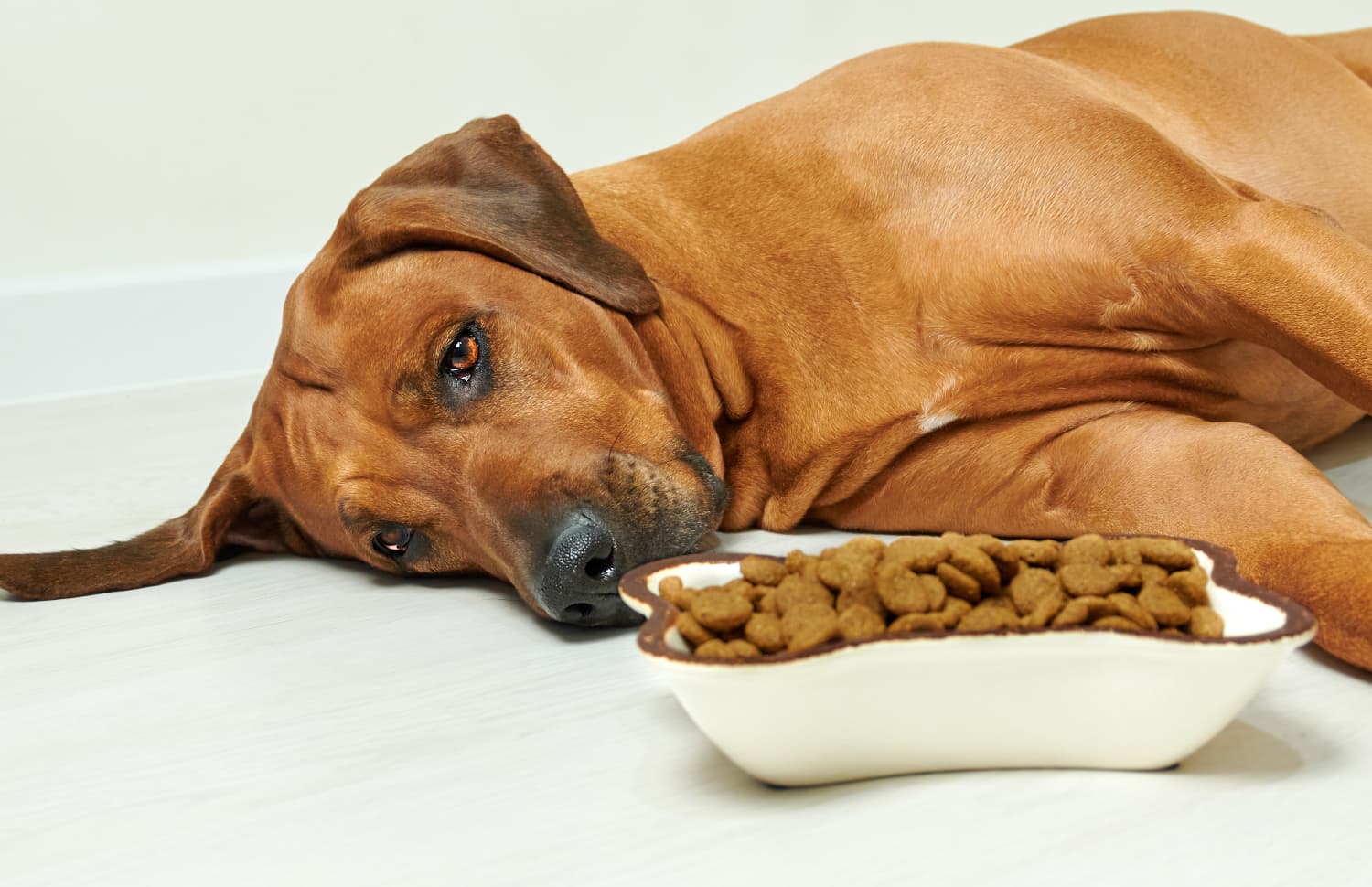
Dogs are man’s best friend, and most of us consider them family members. We feed our dogs whatever we think is suitable, but digestive problems in dogs can still persist.
Digestive problems are one of the most common concerns that pet owners have. They can range from mild, inconvenient, severe, and even life-threatening if not properly diagnosed. Learning how to identify, treat, and even prevent digestive problems in dogs can boost their overall health.
Signs of Digestive Problems in Dogs
It is often easy to recognize digestive problems in canines because their stool will show evidence of problems. You might see loose stool, constipation, and even gas or bloating if your dog is not digesting his food well.
Monitoring stool quality and bathroom habits is important. If you walk your dog daily, checking on these things should be simple, and you can catch problems early.
While your dog’s bowel movements are one of the most noticeable symptoms, keep an eye out for some of the more subtle symptoms of digestive problems.
-
- Loss of appetite
- Eating Grass
- Vomiting
- Lethargy
- Weight Loss/Gain
Look for any changes to your dog's behaviour or habits, as they could be a subtle sign that your dog is dealing with some tummy troubles.
Diet is the Foundation of Good Digestion
When it comes to dog digestion, a high-quality, healthy dog diet is the best place to start. There are so many dog foods out there, but the fact is that not every food is right for every dog. There is no one-size-fits-all dog food.
Instead, you need to find the style and quality of dog food that suits your individual dog's needs.
A good place to start is to learn which dog food ingredients are hard to digest, lack nutrients, or are of inferior quality. Ingredients like soy, mystery meats, and cellulose can all contribute to poor digestion.
Ingredients like potatoes, peas, and corn contain important nutrients for dogs, but too many of these ingredients can affect digestion, nutrient distribution, and weight management.
Common Digestive Problems in Dogs
Not every unusual dog bowel movement is a cause for immediate concern, but if you notice severe, frequent, or recurring digestive issues in your dog, it could be a more serious problem.
Long-term digestive problems can lead to many more serious issues, like malnutrition, nutrient deficiencies, and weight management issues. It's a good idea to be able to spot signs of poor digestion early so that you can seek appropriate treatment.
You need to understand dogs' digestive problems and how you can help them feel better to care for your pet better. The following are the most common causes of digestive issues in dogs:
1. Digestive Tract Diseases in Dogs
Like every other animal, dogs get sick, and when they do, digestive issues follow. Dogs, particularly puppies, are vulnerable to infections of the gastrointestinal system because they do not have the necessary immunity to prevent certain illnesses.
Acute gastroenteritis is a disease that causes Inflammation or infection of the gastrointestinal tract, primarily the stomach and intestines. It is the most common digestive tract disease but is a short-term and easily treatable disorder.
How to Treat Digestive Tract Diseases in Dogs
Probiotics for dogs recommended by veterinarians are the best solution for preventing and treating minor digestive disorders. Probiotics are healthy bacteria that help your dog break down food and combat harmful bacteria in the gut.
The right diet is also important. Choose the best dog food for digestive issues to help improve overall digestive health. Many brands like Farmina, Blue Buffalo, and Vetdiet offer specific diets to support digestive health.
2. Dietary Indiscretion in Dogs

The primary cause of digestive issues in dogs is what they eat. Dietary indiscretion refers to dogs eating something they should not have eaten, like garbage or children’s toys, but a more common name for this is garbage gut.
Garbage gut does not specifically refer to dogs that eat garbage. It could be due to food-related causes where dogs eat foods that just do not agree with their digestive system.
The effects of dietary indiscretion can range from mild to severe, with symptoms including vomiting and diarrhea. Even introducing new food to the dog’s diet can lead to digestive issues.
How to Treat Dietary Indiscretion
Prevention is the best medicine in the case of garbage gut. Keep garbage cans, human food, and other tasty-looking items out of reach to prevent your dog from consuming anything toxic or harmful.
Even if the "food" is not toxic, it could be high in fat or calories and is likely to lead to some digestive discomfort.
3. Stress Diarrhea in Dogs
Most pet owners are surprised that a dog’s mental health can affect its digestive system. Like people, a dog’s body follows its mind, so if a dog has poor mental health, its physical health will also suffer.
Too much stress on a dog’s mind can manifest in digestive issues like diarrhea. Your pet will experience stress when dealing with unfamiliar situations. The addition of a new pet, moving to a new house, significant changes to daily routines, and even illness and injury can increase your dog's anxiety.
How to Treat Stress Diarrhea in Dogs
Managing your dog’s mental health is as important as physical health. Consider any changes to your dog’s environment or routine that may be causing stress or anxiety.
Work with your vet to rule out any physical condition and talk about the most appropriate treatments. A digestive aid like Firm Up! Pumpkin Powder can be used to bulk up your dog’s stool and reduce digestive symptoms while you find the best solutions for your dog’s anxiety.
4. Toxic Ingestions in Dogs
Unfortunately, most people do not know what their dogs can and cannot eat. The price for such ignorance is often digestive issues in the dog.
Toxic ingestion is different from dietary indiscretion in that the latter involves the dog eating something they should not have, while the former involves consuming a toxic substance. Toxic substances that can harm a dog include chocolate, household chemicals, certain plants, human medication, etc.
The effects of toxic ingestion are often much worse than those of dietary indiscretion. The symptoms of toxic ingestion may include digestive issues, tremors, changes in heart rate, etc.
How to Treat Toxic Ingestions in Dogs
Check out the Top 10 Dangerous Human Foods for Dogs to prevent your dog from eating something that could have serious consequences. It’s important that you keep human foods, chemicals, cleaners, and any plants that may be toxic to your dog out of reach.
If you suspect toxic ingestion, you must immediately take the pet to the vet. Call first and let them know what you suspect your dog has ingested, and they can advise you of any immediate action you should take.
5. Dog Food Allergies
Food allergies in dogs are a growing concern for pet owners. While the initial symptoms are often skin and coat issues, digestive problems are not uncommon. The truth is a lot of food allergies and intolerances are caused by digestive issues that can affect your dog’s immune system.
Allergies can be difficult to identify as it is challenging to know what a dog is allergic to, and sometimes it’s not a specific ingredient that is the issue.
How to Treat Food Allergies in Dogs
A common solution to dealing with food allergies is identifying and eliminating the allergen from your dog’s diet. This is often a good solution for dogs with true food allergies. A limited-ingredient diet, like Koha Limited Ingredient Canned Dog Food, can be a useful tool for identifying dog food allergies.
In many cases, the root cause of food allergies is poor digestion. A prebiotic, probiotic, and digestive enzyme combo like Adored Beast Apothecary Healthy Gut can help boost digestion and support the immune system.
Does Your Dog Have Poor Digestion?

Digestion is the root of your dog’s health. If your dog has poor digestion, it can affect every part of their health, including skin + coat, metabolism, and even their immune system. If you notice your dog showing any signs of poor digestion, you should take action.
Probiotics and other digestive aids are great tools for solving acute and chronic issues, but the underlying cause is often rooted in their diet. Connect with your vet to make sure that you are feeding healthy and appropriate dog food.
Dogs' primary causes of digestive issues are allergies, toxic ingestions, digestive tract diseases, dietary indiscretion, and stress. If you deal with the above causes, you significantly reduce the chances of digestive issues in your pet.
Dog Digestion FAQs
What are common digestive problems in dogs?
Common digestive problems in dogs include diarrhea, vomiting, constipation, gas, bloating, and stomach upset.
What causes diarrhea in dogs?
Diarrhea in dogs can be caused by various factors, including dietary changes, infections, food allergies, or underlying health issues. If diarrhea is severe, persistent, or accompanied by other concerning symptoms, it's essential to consult a veterinarian.
How can I prevent my dog from getting constipated?
To prevent constipation, ensure your dog has a balanced diet with sufficient fibre, fresh water, and regular exercise. Avoid feeding them bones or inappropriate items that may lead to blockages.
What's the best dog food for digestive issues?
Transitioning your dog to a bland diet of boiled chicken and rice can often help soothe upset stomachs. However, it's crucial to consult your vet for guidance on any dietary changes to address specific digestive issues.
When should I seek veterinary help for my dog's digestive problems?
You should consult a vet if your dog's digestive problems persist for more than a day or two, are severe, or they exhibit additional concerning symptoms such as lethargy, blood in stool or vomit, or signs of pain.
Can I use over-the-counter remedies for my dog's digestive issues?
For mild digestive issues, over-the-counter pet supplements, such as pumpkin, probiotics, and slippery elm, can be used to provide relief, but prolonged or severe digestive issues should be addressed by your vet.
.png?width=200&height=66&name=logo%20(1).png)



